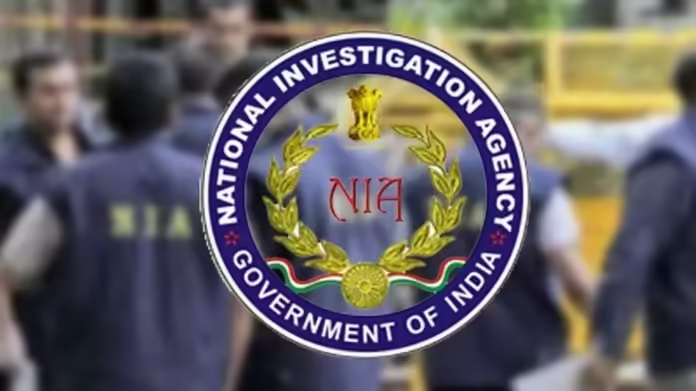The National Investigation Agency (NIA) has summoned a resident of Tripura’s Sepahijala district as part of an ongoing investigation into a suspected Al-Qaeda conspiracy case. This summons comes amidst a broader probe by the agency to unearth suspected terror links, with raids carried out across multiple states. The Tripura resident has been asked to appear at the NIA’s office in Ahmedabad, Gujarat, by November 21. Officials have not yet disclosed his identity, but he is believed to be connected to a larger network of individuals under investigation for alleged involvement in extremist activities.
The investigation is part of the NIA’s continued efforts to curb terrorist networks operating within India. Over recent weeks, the agency has intensified its operations against individuals suspected of having ties to Al-Qaeda. Raids have been conducted across several states, including Gujarat, West Bengal, and Bihar, in search of information, documentation, and suspects who may hold information or links to terror outfits. The NIA has stated that the objective is to dismantle potential cells or networks within India that may threaten national security.
In a statement, an NIA spokesperson explained that the agency has gathered significant intelligence on suspected operatives with Al-Qaeda affiliations. Officials believe that this intelligence is critical in understanding how these networks function and identifying any potential sleeper cells operating within India. The summons for the Tripura resident, according to sources, is based on such intelligence, which links him to suspected individuals who have either directly or indirectly interacted with groups associated with Al-Qaeda.
NIA officials have been working in tandem with state police forces to conduct these searches and have seized documents and electronic devices for forensic analysis. Some of the materials recovered during the raids reportedly contain information pointing towards potential indoctrination tactics and recruitment efforts for Al-Qaeda. Investigators believe that certain individuals in the network may have provided logistical support to facilitate the movement or communication of extremist groups. The probe has also revealed connections between individuals in various states, suggesting a wider nexus of Al-Qaeda sympathizers.
Sources close to the investigation suggest that the involvement of individuals from different states is indicative of a more extensive attempt by Al-Qaeda to build connections across regions. The NIA is concerned that such a network, if left unchecked, could potentially mobilize individuals for extremist activities within India. The summons to the Tripura resident could be a crucial piece in understanding the operational strategies of this network and identifying any high-risk individuals.
In recent months, the NIA has increased its vigilance, launching multiple operations to monitor suspicious activities. This increased activity follows an uptick in intelligence reports indicating an attempt by Al-Qaeda to recruit individuals and establish small cells across India. The NIA’s actions come amidst heightened concerns about foreign influence and radicalization tactics targeting vulnerable populations.
The summons to the Tripura resident also highlights the importance of cooperation between the NIA and local law enforcement agencies in regions that have not traditionally seen much extremist activity. Tripura, while not usually associated with terrorist activity, is now under increased scrutiny as the NIA investigates any potential links between local individuals and larger, national or international networks. The agency hopes that cooperation with local authorities will strengthen intelligence gathering and prevent any further radicalization in the area.
India’s security apparatus has consistently stressed the need to be vigilant against emerging threats, especially from extremist groups that operate both online and offline. Security analysts point out that Al-Qaeda, though weakened globally, has shifted to recruiting locally, targeting individuals in countries like India to maintain influence and project its ideology. The NIA has been actively working to counteract this strategy, focusing on prevention by dismantling suspected networks before they can act.
The current investigation remains active, with the Tripura resident’s interrogation expected to yield more details about the extent of his involvement. The NIA remains committed to safeguarding the nation’s security and has assured the public that all necessary steps will be taken to address any potential threats. This case, part of a broader crackdown on terrorism, is one of many that the NIA has pursued recently, underscoring the agency’s commitment to national security.




